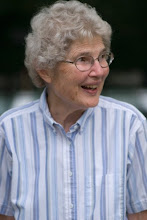 In Church today we were talking about family history. Everyone was handed a little sheet of paper and a pencil to write down a story about an ancestor. And somewhere in the space between my paper and pencil, there was a thought.
In Church today we were talking about family history. Everyone was handed a little sheet of paper and a pencil to write down a story about an ancestor. And somewhere in the space between my paper and pencil, there was a thought.I thought about the stories that came from the people before us. I thought about how often they seem like a validating part of us. Like when you're little, just a kindergartner, let's say and you find out that your great-great-great grandmother was Pochahontas. As a kidergartener you run all around the school yard, the playground, even in your class and stand up and declare imperiously that you are related to Pochahontas. It dazzles everyone. You even make some new friends, just because they wanted to be with the Indian Wild Princess Girl. Just so they can go home and show off to their big brother that they have a friend who is Pochahontas.
But just because she's your great-great-great grand mama, doesn't make you any cooler. It's not like it gives you super powers where you can now talk to trees and little animated racoons. Ghandi's great grand son is just another person. His life is his own to make something of, it isn't like he gets free cookies for being a descendant of Ghandi, right?
But I then I think of the Hanukkahs, which I have been celebrating as long as I can remember. I think of the Passovers, and the nights spent in a living room full of all my older siblings dancing to Banghra music. And I decided, hovering somewhere there in the air inbetween the paper and my pencil, that the stories and ancsestors only shape us as much as we embrace them as a part of ourselves.
I did not wake up in the mornings in India and eat rotis for breakfast and go to work in the fields. But as I fold the dough on the counter and roll it out for my brother Stephen to cook on a hot pan, using only his hands, I can imagine and connect to the people who did. I can feel them running through me, through my veins.
And I don't know all the stories, certainly not as many as James, who is much taller and therefore has more room inside him for such things as stories. I just have distorted and fragmented peices that sort of drift through me and weave and set into place in my life, amongst my own stories that I am painting.
I have my own stories, of edgy reckless climbing and learning to make waffles by listening for them to speak to me to tell me that they are done. I have stories of magnificient, laughable stupididy, of plane rides alone to foriegn places and they go on and on......
But within them there are the peices of other people that give me direction; for example my history lead me to India, to see this country that I have only felt before in my brother's beard and the beat of music, only seen in my grandfather's eyes. It lead me to read or rather stumble over the four questions in Hebrew at a Seder held on the floor of an apartment in Thailand. It lead me to teach a group of Christians how to dance the Horah, and to teach a Thai woman how to cook tortilla soup.
But this thought is getting to big for the space alloted; it only has a tiny space between a 2B pencil that is closing in on the sheet of white paper, so I jot down a story involving Jews in Romania and hand it in.
And I end my Ramblings.


